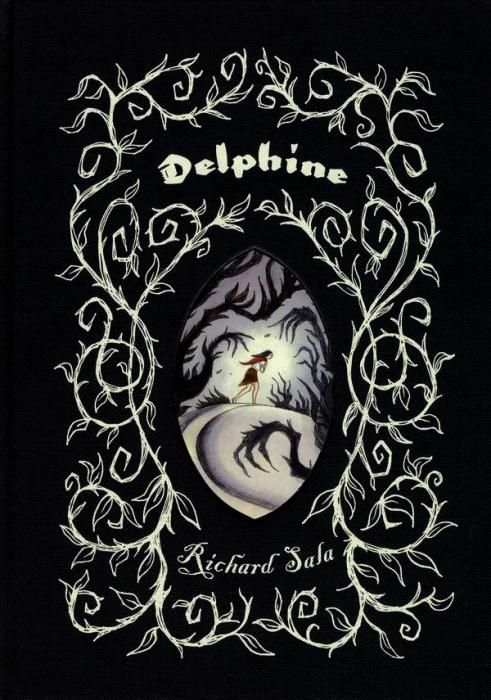Richard Sala's beautifully illustrated "Delphine," an extremely loose reinterpretation of "Snow White" told from the perspective of the unnamed (and more modern) "Prince Charming," is delightfully dark and mysterious. One part comic book and one part fever dream, there's a lot to like in this hardback collected edition from Fantagraphics.
Collecting the original four-issues from Fantagraphics' Ignatz Series into a lovely hardcover, there's nothing to complain about when it comes to the collection as an art object. It's beautiful and will be at home on any shelf of great books. The interior is equally gorgeous, with Sala's soft but dark art swirling across every page. Bathed in saturated sepia tones (except for the cover page chapter breaks which have a more upbeat color palette) the book looks as bleak as the writing and content suggest.
Every character in "Delphine" looks not unlike a "monster," with the exception of the lovely Delphine and our hero "prince." Thanks to the unrelenting visuals -- the dark town, the creepy woods, the "monstrous" folks, the looming castle and even the lettering -- the tone of this book slides from dark fairy tale all the way to horror story. The feeling of fear and dread for the main character as you read is as palpable as any protagonist that breaks down in a small town at the beginning of a horror film. I had to restrain myself from yelling at the pages, "Don't trust him!" and, "Don't go that way!" Rare is the opportunity that I'm so engaged I consider yelling at an inanimate object such as a book.
However, though I ultimately enjoyed "Delphine" immensely, I would have preferred a more clear narrative and a bit less of the experimental confusion that's offered in the book. It's a personal choice, and not everyone will agree, but I ached for some clarity at times when the book just got stranger and more intractable through the main characters hallucinations. It's hard to tell the real from the imagined, which is clearly deliberate but didn't entirely work. The demanding story is quite well suited for what Sala tries to do and for the type of story he's opted to tell, but for me it was just a bit too opaque. It was also lacking in any hope or lightness at all. "Delphine" should not necessarily be a pleasant story or have a happy ending, but a bit of cheerfulness or levity somewhere would have gone a long way to lightening the unrelenting grimness within.
On the whole, "Delphine" is an engaging fairly tale for those that like their fairy tales dark, and for those that appreciate a whole new level of creativity in their interpretations of existing work. "Delphine" is also a nice contrast to the unrelentingly bright and happy fairy tales that are so often seen when it comes to modern reinterpretations of those early dark tales.

